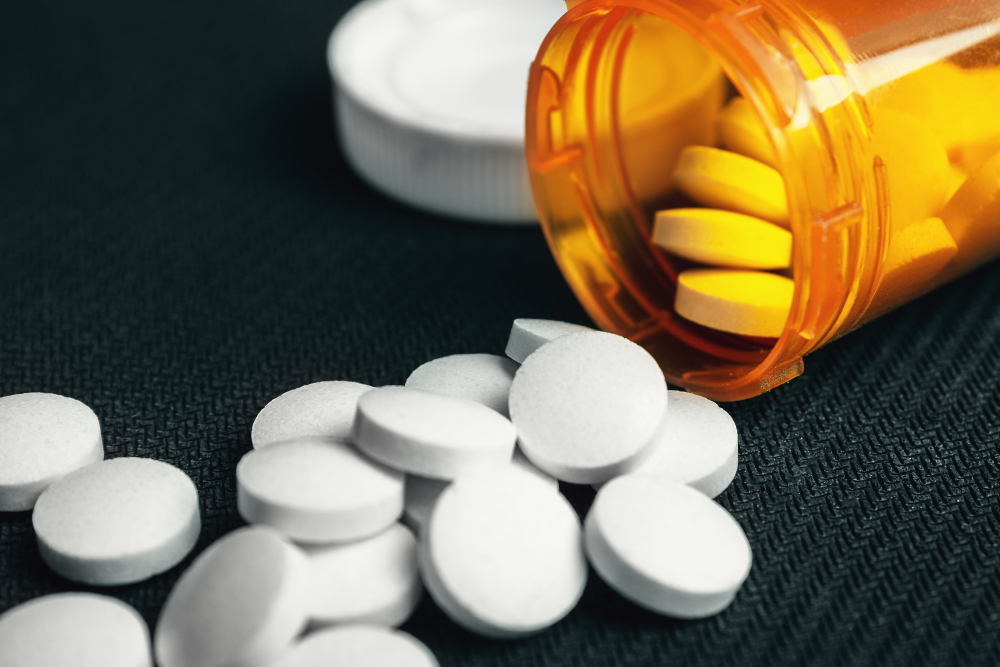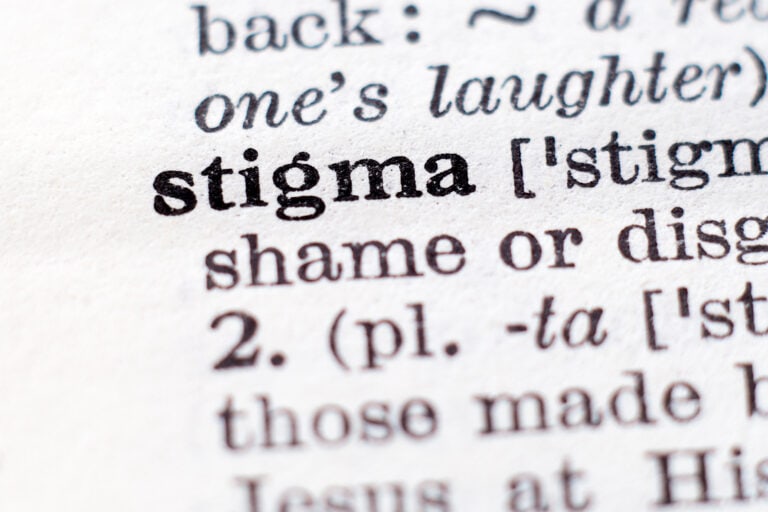Vyvanse vs Adderall? A question as old as time—or as old as the age of advanced pharmaceuticals. People who have attention deficit hyperactivity disorder (ADHD) are generally prescribed one of two medications to help them with their condition, either Vyvanse or Adderall. As a result, many patients are curious what the differences are in Vyvanse vs Adderall.
Or, another possible scenario is that some people who don’t have a prescription are using Adderall and/or Vyvanse to get high or to gain more energy. If you fall into this category, we at Knoxville Recovery Center addiction rehab program understand how hard it can be to break free of harmful habits like these. Let’s take a moment to talk about the differences between Adderall and Vyvanse and explore how they work inside of your body.
Vyvanse and Adderall are both medications used to treat ADHD, but Vyvanse is typically prescribed as a long-acting form of the medication, therefore being milder, while Adderall is a short-acting form.
What is Adderall?
Adderall is an amphetamine-based medication that is used to treat ADHD and narcolepsy. It is also prescribed for people who want to increase their focus and improve their mood. Adderall is taken as a pill and works by increasing levels of the neurotransmitter dopamine in the brain. Dopamine is responsible for feelings of well-being, concentration, and reward. When someone has ADHD, dopamine levels are low in the brain.

The medication Adderall helps increase dopamine levels, allowing people with ADHD to have more focus and concentration, as well as a boost in mood and energy. Adderall is a Schedule II controlled substance, which means it has a strong potential for abuse. Individuals who take it for non-medical reasons may find that it provides a “high” or feeling of euphoria. Furthermore, long-term use of this medication may negatively impact the development of the brain, especially in young people.
What is Vyvanse?
Vyvanse is another amphetamine-based medication that is used to treat ADHD and is taken as a tablet. Vyvanse is a powerful ADHD medication that is also used to treat binge-eating disorder. It also works by increasing levels of the neurotransmitter dopamine in the brain. Like Adderall, Vyvanse is a controlled substance, which means it has a strong potential for abuse.
Vyvanse works by increasing the brain’s ability to transmit and receive signals. This, in turn, helps people focus on tasks, reduces hyperactivity, and increases attention span. ADHD is a brain disorder that affects at least 5 percent of children. People with ADHD have trouble focusing, focusing on one thing for too long, and/or controlling their behavior. People with ADHD may struggle with paying attention to schoolwork, engaging in age-appropriate social interactions, or managing their own impulses. Vyvanse can help with these symptoms.
Vyvanse vs. Adderall
Although both medicines are used to treat the same medical conditions, there is one main difference between Adderall and Vyvanse. Adderall contains four different kinds of amphetamine salts, whereas Vyvanse only has one. It is known as lisdexamfetamine, which must be chemically converted by the body before it is activated.
Since Adderall contains free amphetamine salts, the possibility of it being abused is greater than Vyvanse. However, both are controlled substances and therefore have a high potential for abuse. Another difference is that since there is no generic version of Vyvanse on the market, it costs more to buy than Adderall.
Which is Abused More?
Adderall has a greater potential for being misused since it contains amphetamine salts that are unbound. On the other hand, Lisdexamfetamine (the main component of Vyvanse) is only activated into dextroamphetamine when it interacts with red blood cells, which implies it has elements that reduce the chance of abuse. Unfortunately, no research has been done yet to compare the risk of abuse between Vyvanse and Adderall. Lisdexamfetamine is still considered a controlled substance with a high chance of being misused, so those who take either Vyvanse or Adderall should store their medication safely and securely to prevent unauthorized use. Taking amphetamine-type drugs in the wrong way can lead to sudden death, stroke, heart attack, convulsions and psychotic reactions.
About Prescription Stimulants
Prescription stimulants work to escalate levels of chemicals in the brain known as dopamine and norepinephrine. Dopamine is involved in the pleasure center of the brain, while norepinephrine influences factors such as heart rate, blood pressure, blood vessels, breathing rate, and blood sugar levels. When you take prescription stimulants, you become more alert, attentive and you gain energy.
Useful for treating ADHD and narcolepsy, when misused, prescription stimulants can become addictive and dangerous to your body in many ways. If you don’t have a prescription and you are taking Adderall or Vyvanse, you should be concerned about this.

Are Vyvanse and Adderall Addictive?
It is possible to misuse or become addicted to any stimulant, however Adderall XR and Vyvanse are formulated in such a way that the active substances are released gradually, making it less probable that abuse or dependency will occur. This is especially relevant in the case of Vyvanse because the stimulant component of the drug is only released after the lysine has been processed by the body.
How Long do These Prescriptions Last?
A standard dose of Adderall lasts up to 4 hours in the system. The extended-release form, referred to as Adderall XR, is capable of providing 8-12 hours of coverage. This is due to the presence of two types of beads, one that works quickly, and the other that works more slowly. Vyvanse is the trade name for lisdexamfetamine dimesylate which is available as both capsules and chewable tablets. It also contains the stimulant amphetamine, in addition to a compound known as lysine. The stimulant effects only occur when the lysine is absorbed, thus leading to a dose that can have an effect for up to 14 hours.
Side Effects of Amphetamine-Based Medications
Adderall is a controlled substance and may cause serious side effects, especially when taken long-term. These possible side effects include:
- Serious cardiac events, including heart attacks and strokes
- Permanent damage to the brain, including addiction and cognitive impairment
- Weight loss and malnutrition
- Liver damage
- Nausea
- Depression
- Fatigue
- Severe mood swings
- Sexual dysfunction
- Suicidal thoughts
- Unpredictable behavior
- Long-term use may also cause aggression, hostility and violent tendencies
The risks and side effects of Vyvanse are also quite serious, including all of the above side effects listed for Adderall. In addition, long-term Vyvanse use is also linked to a higher risk of contracting a sexually transmitted infection (STI) such as HIV, hepatitis B or hepatitis C.
Is Adderall or Vyvanse Better for ADHD?
There are pros and cons to both Adderall and Vyvanse. Some people have better outcomes when they take one of these medications. It’s important to talk to your doctor about which medication might work best for you. If you have attention deficit hyperactivity disorder, Adderall is considered an effective treatment option. In fact, Adderall is one of the most commonly prescribed medications for ADHD in the United States. There are many benefits of taking Adderall, including improved focus, reduced impulsivity, and a better ability to stay organized.
Taking Adderall can help you organize your day so that you have less trouble paying attention to your surroundings, you’re less impulsive, and you’re better at staying organized. Vyvanse is also a commonly used medication for treating ADHD. However, Vyvanse has a few benefits that Adderall does not. One of the benefits of Vyvanse is that it does not have the same risk of abuse or overdose as Adderall does. No matter which medication you choose, it’s important to remember that ADHD medications can help people with ADHD by increasing their focus and reducing their impulsive behaviors.

Is Vyvanse Better For Anxiety?
While both Vyvanse and Adderall might be utilized off-label as a treatment for anxiety, they are not usually the initial therapeutic choices for this disorder. Vyvanse is a prodrug which is inactive until the body metabolizes it into its active form, dextroamphetamine. This gradual transformation enables a longer action duration and can diminish the possibility of side effects such as restlessness and sleeplessness, which are common with other stimulant drugs like Adderall. Adderall, on the other hand, is a combination of dextroamphetamine and levoamphetamine, which acts more quickly and could possess a more powerful impact on ADHD symptoms. Nonetheless, it has a higher risk of side effects, especially when taken in large doses.
Even though medications may have the potential to lessen symptoms of anxiety, they could also make certain people more anxious due to being a stimulant. So, it is essential to speak to your healthcare provider and have an exhaustive evaluation of your symptoms before beginning any medication for anxiety. Your healthcare provider will decide the best approach to treatment based on your individual needs and medical background. Other medications, such as selective serotonin reuptake inhibitors (SSRIs), serotonin-norepinephrine reuptake inhibitors (SNRIs) and Benzodiazepines, which are not stimulants, are generally the first option for treating anxiety disorder, and it is suggested to try these medicines before considering stimulant medications.
Interactions and Risks
When making the choice of which ADHD medication is suitable for you, it is important to take into account any other medications you may be taking. Both Adderall and Vyvanse can interact with various other drugs or substances. Substances that make the body’s pH more acidic, such as ascorbic acid and different fruit juices, can reduce the amount of medication taken in by the body. On the other hand, alkalizing agents, like baking soda, have the reverse effect and can increase the amount of medicine absorbed.
It is important to keep a close eye on those who use stimulants such as Adderall and Vyvanse in conjunction with Monoamine Oxidase Inhibitors (MOIs), which are a distinct type of antidepressant. The combination of these two drugs (a stimulant and an MOI) can cause dangerous health problems for some individuals. Combining a stimulant (such as Adderall or Vyvanse) and an opioid (including Vicodin or OxyContin) can lead to physical and mental issues, including dependence. Those who have been prescribed both types of medicines should be carefully observed by their physician.
Vyvanse vs Adderall: Dangers of Abuse
When you ingest chemicals into your body that are not meant for it to have, you are taking a big risk. You are gambling with your life when you take Adderall or Vyvanse to get high.
First of all, if you take too many of either prescription, you risk overdosing. You could have a heart attack, a seizure, blood pressure that is too high or too low, or blood poisoning. Other symptoms of overdose from prescription stimulants include rapid breathing, hallucinations, panic or confusion, a spiked fever, and weakness.
Addiction is the most common manifestation of experimenting with Adderall or Vyvanse. One of the main concerns with becoming addicted is that you develop a tolerance for the amount that you have been taking, and you are left wanting more.
Online medical journals give the following warning regarding Adderall abuse, “Taking Adderall at excessive doses or not as prescribed can affect your whole body, including your cardiovascular system, metabolism, and your brain.”
What If You Have Become Addicted?
We at Knoxville Recovery Center know how difficult it can be to kick a prescription drug habit, especially one for stimulants like Vyvanse and Adderall. During your detoxification period, we will stand beside you, providing guidance and comfort during this challenging time.
We will help you identify possible sources of the addiction and give you the tools to begin your recovery journey. We want to understand why you picked up the bottle of pills in the first place, find the places within you that are broken, and help you find yourself again.
Why put it off another day? Your mind and body are waiting for you to become clean again. Our friendly staff at Knoxville Recovery Center is eager to speak with you.

Benefits of Rehab for Vyvanse or Adderall Abuse
Studies demonstrate that a majority of people who go through prolonged treatment for addiction eventually discontinue utilizing Vyvanse or Adderall, and their psychological, social, and occupational performance improves. However, learning new, more beneficial habits requires time and the more a person participates in therapy, the more probable it is for them to experience long-term recovery. The following are benefits of rehab for prescription stimulant addiction:
Better Chance at Recovery
The habitual use of substances can cause people to act in an ill-adjusted way and make it the regular way of life. Prolonged substance abuse can have an influence on people’s ability to make decisions and judge situations. Individuals must invest time in order to undo the results of such abuse and learn to conduct themselves in a constructive manner. Getting long-term addiction treatment can be more advantageous than short-term treatment, and it is more likely to result in an enduring state of sobriety.
Become Educated on Addiction
After you have managed to free yourself from the clutches of drugs, you will be able to think more lucidly and can instruct yourself on your drug addiction. To understand your addiction better, you must be aware of the people, situations, sensory experiences and activities that encourage your cravings for drugs. Most rehabilitation centers can help you identify these triggers so that you can make an effort to either avoid them or manage them as you return to your normal life.
Identify Deeper Issues
There are various factors that contribute to an addiction to drugs, and it is essential to gain an understanding of what is driving your particular dependency. Could it be an effort to manage stress or to flee from feeling physical or emotional pain? Perhaps drugs are a way to avoid taking responsibility, or to gain the approval of others or to fit in with a certain group? It is critical to get to the root of your drug habits and rehabilitation professionals are available to help you identify the underlying reasons and can provide you with the tools to find new methods to cope without relying on drugs.
Establish Boundaries
Substance addiction commonly results in an unbalanced distribution of responsibility between abusers and their loved ones. In such cases, the boundaries that are important for creating and maintaining strong relationships are often distorted or poorly defined. This leads to the development of a defensive mindset amongst family members, who then take on roles that can provide a temporary sense of relief but ultimately fail to address the real issue. Rehabilitation facilities are available to help individuals identify where these boundaries become confused and how to restore them to a healthy state.
Knoxville Recovery Center Can Help
Fortunately, help is available for those battling addiction and/or mental health issues. Knoxville Recovery Center offers various services to those struggling in any stage of addiction or mental illness.
Services offered:
Detox – Our on-site detox clinic accommodates and supports clients as the body sheds all residual traces of addictive substances. Clients are under medical supervision during the detox process to ensure that they remain safe and comfortable.
Addiction Treatment – During our addiction treatment program, clients will engage in introductory therapies and exercises that work to prepare them for continued, more intensive treatment outside of our facility. The goal of our addiction treatment track is to stabilize clients so that they are treatment-ready.
Mental Health Treatment – Our mental health treatment program introduces behavioral therapies rooted in self-expression and holistic exercise. Art therapy, music therapy, and yoga are just a few forms of therapy we offer at the center. Our goal is to help the client reclaim their voice and expose them to treatment within a professional facility.
Aftercare Planning – Aftercare is designed for individuals who have benefitted from our introductory addiction services and are transitioning into a more intensive addiction treatment program. Once a client is stabilized, they will be encouraged to pursue continued addiction treatment. Our experienced case managers will then work with our clients to place them in a program that addresses their specific wants and needs.
If you feel that you or a loved one is struggling and needs help, or if you’re curious about the difference in Vyvanse vs Adderall or any other stimulant prescription drug, our specialists are on standby and ready to help. Call Knoxville Recovery Center and speak with an expert today.








